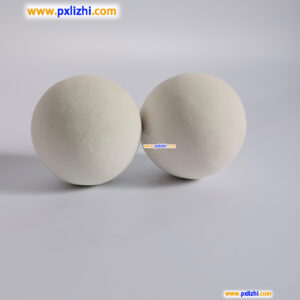
# Inert Ceramic Ball Applications in Industrial Processes
## Introduction to Inert Ceramic Balls
Inert ceramic balls are high-performance ceramic spheres widely used in various industrial applications. These balls are manufactured from high-quality alumina or other ceramic materials, offering exceptional chemical stability, thermal resistance, and mechanical strength. Their inert nature makes them ideal for processes where contamination must be avoided.
## Key Properties of Inert Ceramic Balls
Inert ceramic balls possess several remarkable characteristics that make them valuable in industrial settings:
- High chemical resistance to acids and alkalis
- Excellent thermal stability up to 1600°C
- Superior mechanical strength and wear resistance
- Low water absorption rate
- Uniform size distribution and smooth surface
## Major Industrial Applications
1. Catalyst Support in Petrochemical Industry
Inert ceramic balls serve as excellent catalyst supports in petroleum refining and petrochemical processes. They provide a stable base for active catalysts while ensuring proper gas or liquid distribution through the reactor bed.
2. Packing Material in Chemical Towers
These ceramic balls are extensively used as tower packing in distillation, absorption, and stripping columns. Their uniform shape and size promote efficient mass transfer while minimizing pressure drop across the tower.
3. Grinding Media in Ball Mills
The high density and wear resistance of inert ceramic balls make them ideal grinding media for milling operations in the ceramic, paint, and pharmaceutical industries, where contamination from metal balls must be avoided.
4. Heat Storage Medium
In high-temperature heat exchange systems, inert ceramic balls function as effective heat storage media due to their excellent thermal conductivity and heat capacity.
5. Gas Distribution Media
In fluidized bed reactors and other gas-solid contact systems, inert ceramic balls help distribute gases evenly while protecting delicate catalyst particles from mechanical damage.
## Advantages Over Alternative Materials
Compared to metal or plastic alternatives, inert ceramic balls offer:
- Longer service life due to superior wear resistance
- Better performance in corrosive environments
- Higher temperature tolerance
- Lower maintenance requirements
- Reduced contamination risk in sensitive processes
Keyword: inert ceramic ball
## Selection Considerations
When choosing inert ceramic balls for industrial applications, consider:
- Required chemical compatibility
- Operating temperature range
- Mechanical stress conditions
- Desired porosity (dense or porous)
- Size distribution requirements
## Conclusion
Inert ceramic balls have become indispensable components in numerous industrial processes due to their unique combination of properties. From petrochemical refining to pharmaceutical manufacturing, these versatile ceramic spheres continue to enhance process efficiency, product quality, and equipment longevity across multiple industries.